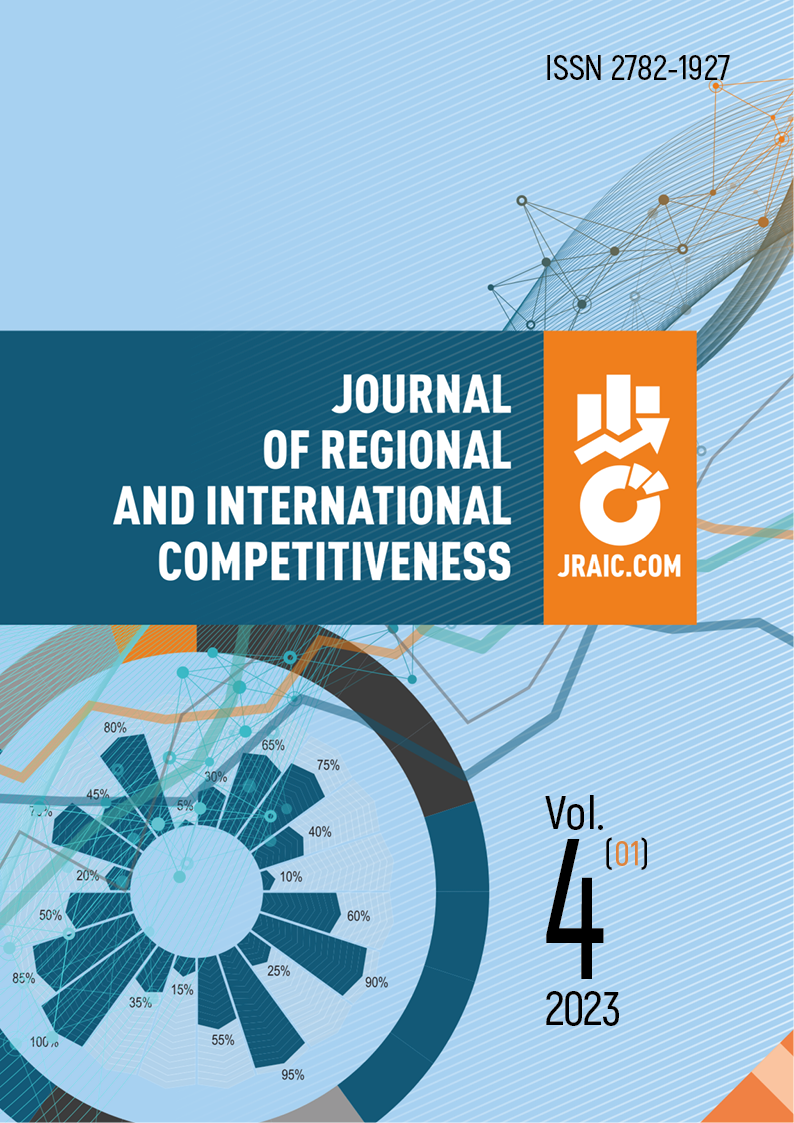Moscow, Moscow, Russian Federation
The issue of ensuring technological sovereignty is becoming increasingly relevant under the sanctions restrictions. The article discusses the possible alternatives to the economic development of manufacturing industries in Russia: the strategy of inclusion into global value chains, and the concept of «technological autarky». The paper analyzes the domestic scientific papers in terms of the «technological sovereignty». On the basis of economic and food security approach understanding of Russian manufacturers’ national independence from the foreign technologies and equipment import appears. The paper also emphasizes the issue of «technological sovereignty» and development of integral and sectoral indicators at the macro and sectoral level based on dependence on foreign technologies and equipment imports on the proximity to the global technological frontier. The author dwells on the mutually beneficial technological cooperation with «friendly countries», in particular with the BRICS countries, as an only alternative in the existing geopolitical realities of the «Technological autarchy» strategy. This cooperation also can include the long-term joint projects.
TECHNOLOGICAL SOVEREIGNTY, VALUE CHAINS, TECHNOLOGICAL BORDER, ECONOMIC SANCTIONS
1. Afanasyev, A. A. (2022). Technological sovereignty as a scientific category in the system of modern knowledge. Ekonomika, predprinimatel’stvo i pravo, 12(9), 2377-2394 (in Russian).
2. Busygin, E. G., Gukov, A. S., Ekaterinovskaya, M. A., Kapoguzov, E. A., Maltsev, V. V., Nureyev, R. M., Kharlamova, M. S., Khaustova, K. V., & Chupin, R. I. (2021). Economic sanctions against Russia and Russian anti-sanctions: costs and benefits of confrontation. R.M. Nureyev (Ed.). Moscow: OOO “Izdatel’stvo “KnoRus” (in Russian).
3. Gershenkron, A. (2015). Economic backwardness in historical perspective. Moscow: Izdat. dom “Delo” (in Russian).
4. Zamulin, O. A., & Sonin, K. I. (2019). Economic Growth: The 2018 Nobel Prize and Lessons for Russia. Voprosy ekonomiki, (1), 11-36. DOI:https://doi.org/10.32609/0042-8736-2019-1-11-36 (in Russian).
5. Kapoguzov, E. A. (2022). Import dependence of the Russian civil aviation industry. Vestnik Tomskogo gosudarstvennogo universiteta. Ekonomika, (58), 58-76 (in Russian).
6. Kovalev, S. G. (2020). Technological sovereignty of Russia in the newest world order. Filosofiya hozyajstva, (6), 29-47 (in Russian).
7. Kolpakov, A. Yu., & Saenko, V. V. (2023). Analysis of the fuel and energy complex sectors dependence of Russia on imported equipment based on public data. Problemy prognozirovaniya, (1), 144-155 (in Russian).
8. Levin, S. N., & Sablin, K. S. (2021). Catch-up development vs. Forward-looking development: from theoretical models to developmental state practices. Journal of Economic Regulation,12(4), 60-70.
9. Prikhodko, I. I. (2022). Theoretical aspects of the technological sovereignty concept. Uchenye zapiski Krymskogo federal’nogo universiteta imeni V.I. Vernadskogo. Ekonomika i upravlenie, 8(4), 88-96 (in Russian).
10. Faltsman, V. K. (2018). Technological sovereignty of Russia. Statistical measurements. Sovremennaya Evropa, (3), 83-91 (in Russian).
11. Shkodinsky, S. V., Kushnir, A. M., & Prodchenko, I. A. (2022). Impact of sanctions on Russia’s technological sovereignty. Problemy rynochnoj ekonomiki, (2), 75-96 (in Russian).
12. Acemoglu, D., Aghion, P., & Zilibotti, F. (2006). Distance to frontier, selection, and economic growth. Journal of the European Economic Association, 4(1), 37–74.
13. Aghion, Ph., & Howitt, P. (2006). Appropriate growth policy: A unifying framework. Journal of the European Economic Association, 4(2-3), 269-314.


















